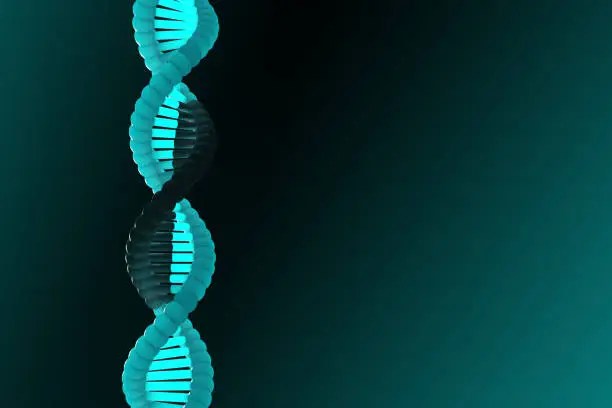How genetic editing & biohacking may lead the future of aesthetics & wellness

Everyone is familiar with ‘hackers’ and ‘hacking’ in the context of computers and the internet. So when you hear ‘biohacking’ it is natural to assume it has similar dark undertones. In reality, biohacking is an attempt by people to change aspects of their biology to improve health and wellbeing and have a better control over health, improve athletic performance, fix perceived flaws in their body and slow down the process of ageing.
Some types of traditional health practices or biohacking have been around for many years such as intermittent fasting, use of fermented foods, meditation, yoga, breathing exercises and cold water immersion.
Amongst recent industry educational events, Specialist Plastic Surgeon Dr Naveen Somia (PhD, FRACS) has elucidated to the benefits and predictions of the future of aesthetics and wellness, and how ‘biohacking’ may very well take a permanent seat at the table, alongside non-surgical and surgical options. SPA+CLINIC caught up with Dr Naveen to discuss this further.
What is your prediction of the future of wellness and aesthetics in the context of biohacking and wellness?
Many of the anti ageing interventions currently used will become more personalised and customised to your body based on genetic testing that will be done through a user friendly saliva test. The genetic information gathered will be used to personalise nutrition, diet and exercise to optimise metabolic health and reduce inflammation and ageing related to inflammation. The genetic profile data will be combined with biosensor data health and nutrition to personalise care.
Perceived changes in the aesthetics industry have also been observed, such as a gradual shift from treatments that address social beauty trends and biases to more holistic and comprehensive aesthetic health solutions.
Authentic aesthetic and holistic health solutions include the science of skin care, healthy microbiome, understanding nutrition, gut health as it relates to skin ageing, endocrine and metabolic health disruptors that impact ageing.
AI and technology will have a big impact on self care and will empower people to be proactive. The continuous glucose monitoring sensor probe is one such tech enabled device that is improving the metabolic health of many worldwide. It is anticipated that many more bio sensors are in the pipeline that will impact health and ageing.

Aesthetics and anti ageing will move closer and will be seen as two sides of the same coin. People who want to look good wish to stay young too. The familiarity that people have with diets such as Atkins, paleo and keto will soon be replaced by familiarity with terms of cellular ageing such as mitochondrial dysfunction, telomere shortening, epigenetic alterations and cellular senescence.
How will this innovation in genetic research impact society?
Diffusion of innovation theory developed by Rogers in 1962, explains how quickly a new idea or behaviour is adopted by society. The more the perceived benefit, the quicker the adoption. 6.8 billion smart phone users in the world is a good example.
The research of today is the medicine of tomorrow. Research and drug development have shown to make surgery obsolete in certain aspects. These advances continued to be powered by solid scientific research into genetics, cellular behaviour, cancer biology, molecular biology, drug development and drug delivery.
As we witness substantial research and development in the fields of genetics, cellular biology, nutrigenomics, smart drugs, gut microbiome, wearable technology, sensors and anti ageing, biohacking will take a more prominent role in our lives in the years to come.
As we see the research of today become the medicine of tomorrow, examples of bio hacking will soon become seamlessly integrated into our lives in the same way smart phones and social media have.
How should clinics alter their approach in patient care if this is on the horizon?
- Collaborate and work better together
It is estimated that a billion people worldwide will be over the age of 65 by 2030. The impact of ageing on the skin will need to be addressed by a multidisciplinary approach. Skin care, non surgical treatments, surgery and post surgical maintenance skin and anti ageing treatments. - Focus on the wellbeing of the patient
This is a recipe for success in this rapidly changing world. - Read and constantly up-skill
Aesthetic patients will be constantly fed curated aesthetic information on social media. Just as expert information is freely available, there are ‘self proclaimed’ experts whose message resonates with many. Aesthetic professionals need to be ahead of the curve. - Attend meetings, network and keep up with the trends globally
The benefits of attending a large scientific meeting will help you upskill your knowledge, keep abreast of latest technology and the social joys and professional benefits of networking. - Keep up with technology
Genetic markers of skin ageing can now be diagnosed by a saliva test, which will help you chose the right treatment to correct the ageing changes and the best way to prevent skin ageing. Direct to consumer (DTC) kits are readily available offering skin analysis, gene analysis, gut microbiome assessment to name a few. It is anticipated that many more such kits will be available in the near future.
The post How Genetic Editing & Biohacking May Lead The Future Of Aesthetics & Wellness appeared first on SPA+CLINIC.
